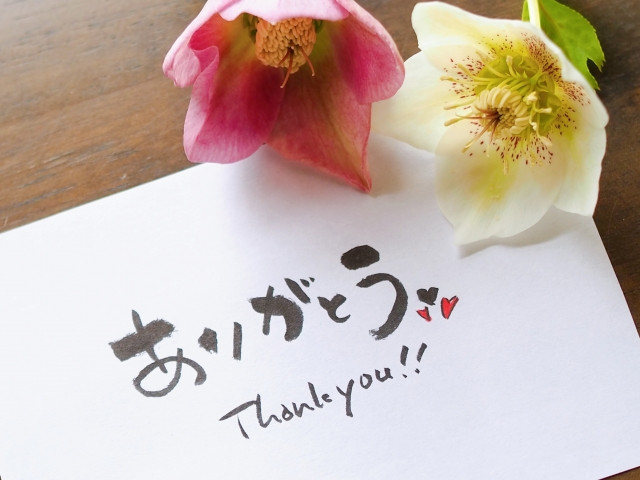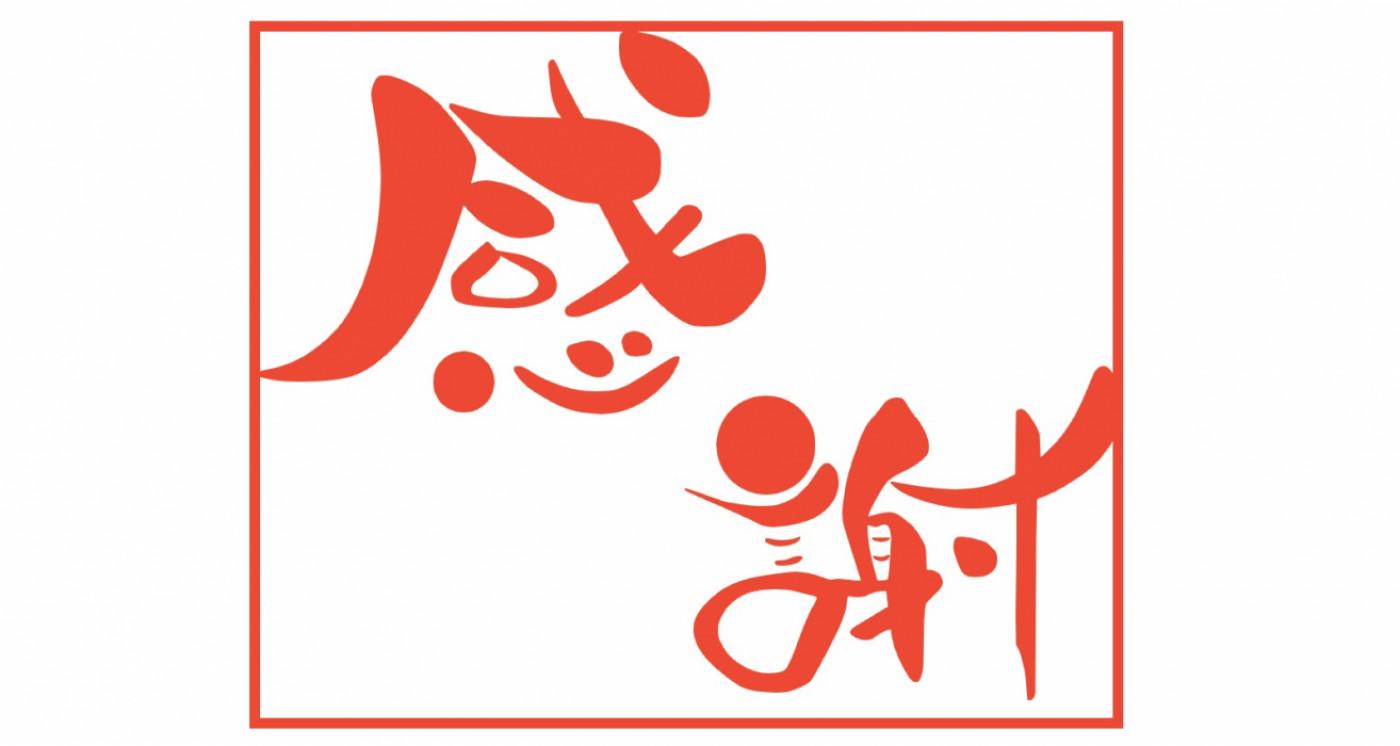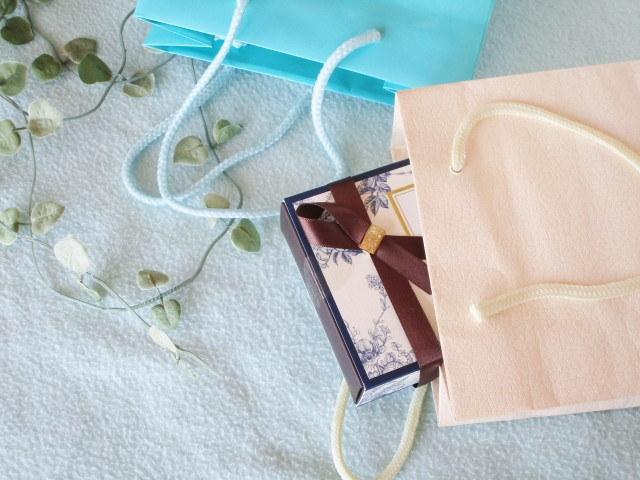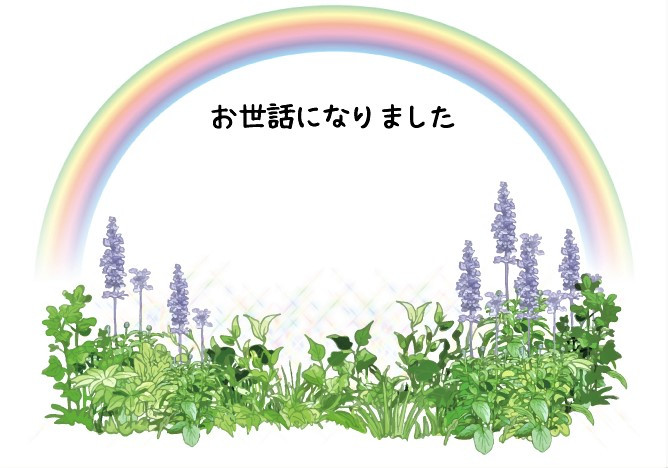There are many opportunities to write thank you messages - whether in thank you cards or cards for other occasions including birthdays, after someone does you a favor, and so on. Make sure you know how to properly thank the person based on the occasion, whether it be through card, email or text message.
Table of Contents
- When to Write a Thank You Card in Japanese
- “Thank you” in Japanese & other basic expressions
- Writing a thank you card in Japanese by occasion
- Other Ways to Say Thank you in Japanese and other related articles
When to Write a Thank You Card in Japanese
Handwriting words of appreciation is customary in Japan, whether through letters, postcards, or cards.
While letter writing in Japanese is a separate art and format in itself, many people opt to write shorter “message cards” for birthdays, to accompany gifts and other special occasions.
You’ll often see a メッセージカード (message card) section - essentially greeting cards - when you go to a stationery store, or you might be offered the option to include one when you buy flowers or a present.
If you need message cards, you can find some here!
Of course messages of appreciation can be expressed through thank you cards - called お礼状 (oreijyou; very formal) or お礼のカード (orei no kaado; casual usage) in Japanese - or included in other types of greeting cards, such as a birthday card.
So whether you’re writing a thank you card in Japanese, or saying thank you in a card for a special occasion, this article is for you!
You can also use these expressions in a text or email as well!
Writer's Pick
“Thank you” in Japanese & Other Basic Expressions

The most basic way to say thank you is ありがとう (arigatou).
However, in a thank you card or message, it’s important to specify what you’re thanking them for.
Grammatically, “Thank you for ~.” would be “~ありがとう。”
And then ありがとう will be be adjusted based on your relationship with the person, what you’re thanking them for, and whether you’re referring to something in the present or past.
For example:
ありがとうございます (arigatou gozaimasu) is more polite and is in present tense.
ありがとうございました (arigatou gozaimasu) is also polite but is used when thanking the person for a past event or at the end of something.
本当に (hontou ni - really) or 誠に (makoto ni - sincerely) can be added in front of ありがとうございます or ありがとうございました to show an extra level of appreciation.
To know more about saying thank you in Japanese (in general), please check out this article:
Arigatou and more: How to Say Thank You in Japanese in All Types of Situations
Using 感謝 (kansha) to mean thank you.

You could also use the word 感謝 (kansha) which means appreciation or gratitude. However, it is a little trickier and more formal to use. Like ありがとう, the thing you are thanking them for will come before the 感謝 phrase, but you have to make sure the level of politeness in the first half matches the level of politeness of the 感謝 phrase you are using.
Thank you
-
感謝します (kansha shimasu) - the basic form of "(I) thank you."
-
感謝いたします (kansha itashimasu) - polite form of "(I) thank you."; use for superiors, clients and elderly
-
感謝(を)申し上げます (kansha (wo) moushi agemasu) - another polite form of "I thank you"; use in e-mails
An even more polite form of "I thank you" but not using the word 感謝 would be:
- 御礼申し上げます (orei moushi agemasu) - orei means gratitude or an expression of gratitude
I am thankful
-
感謝しています (kansha shite imasu) - the basic form of "I am thankful."
-
感謝しております (kansha shite orimasu) - more polite form of "I am thankful."
Other thankful phrases using 感謝
-
感謝の気持ちでいっぱいです。(Kansha no kimochi de ippai desu) - I’m filled with gratitude. (This is the most casual on the list)
-
ただただ感謝しております。(Tada tada kansha shite orimasu) - I am simply so thankful.
-
心から感謝いたしております。(Kokoro kara kansha itashite orimasu) - I thank you from my heart.
Other basic expressions you could include in the card
嬉しい (ureshii desu) - I'm happy/glad
嬉しい (ureshii desu) means “I’m happy/glad”. In a card or message, you would also need to put what makes/made you happy before 嬉しいです for it to make sense.
For example:
-
出会えて嬉しい (deaete ureshii desu) - I’m glad I met you. (Another way to say this is 出会えてよかった (deaete yokatta).)
-
友達になれて嬉しい (tomodachi ni narete ureshii) - I’m glad we became friends.
You can add 本当に (hontou ni - really) in front of 嬉しい to emphasize how happy you are. Also make sure to add です (desu) after 嬉しい if you need to be more polite.
また (mata) - again or 今度 (kondo) - next time
Many people also often make a plan for the future with the person in their message using また (mata) or 今度 (kondo).
For example:
-
また一緒に出掛けましょう。(mata issho ni dekakemashou) - Let’s go somewhere together again.
-
今度一緒に出かけましょう。(kondo issho ni dekakemashou) - Let’s go somewhere together next time.
これから (korekaramo) - from now on
As a closing, many people put something about “from now on” using これから (korekara).
The most common is
-
これからもよろしくお願いします。(Korekaramo yoroshiku onegai shimasu) - I look forward to our continued relationship from now on; this can be used toward anyone, regardless of your relationship with them
Use これからもよろしくお願い致します (korekaramo yoroshiku onegai itashimasu) to be more formal and polite.
Writing a Thank You Card in Japanese by Occasion
While we can continue to list individual words and phrases as commonly used examples, it’s easier to illustrate by giving specific examples for each occasion.
Thanking people you have close relationships with (family, partner, friends; on birthdays and family-related holidays) in Japanese
This is for close friends and family that you spend a lot of time with, or you have a long relationship with.
-
いつもありがとう 。(Itsumo arigatou) - Thank you as always for everything you do.
-
いつも感謝しています。(Itsumo kansha shiteimasu) - I’m always thankful to you.
-
日頃の感謝を込めて。(Higoro no kansha wo komete) - With all my gratitude. (This is usually written last in the card before your name)
The word いつも (itsumo) which means always or continually can be used for people you have close and/or long relationships with.
For example
-
いつも応援してくれてありがとう。(Itsumo ouen shite kurete arigatou) - Thank you for always supporting me and cheering me on.
-
いつも支えてくれて、ありがとう。(Itsumo sasaete kurete arigatou) - Thank you for always being my support.
-
いつもそばにいてくれてありがとう。(Itsumo soba ni ite kurete arigatou) - Thank you for always being by my side.
Adding sentences using the words また (mata) or 今度 (kondo) mentioned above would fill out the message.
If you want to say “thank you for listening” or “thank you for the advice”, check out our article here:
How to Say Thank You for Listening in Japanese - in Conversation and in Speeches or Presentations
And closing off with
-
これからもよろしく(お願いします)。(Korekaramo yoroshiku (onegaishimasu)) - I look forward to our continued relationship from now on
is a great way to end the message.
“Thank you for the present” in Japanese

When thanking someone for the present, the basic format is as follows:
(adjective) (item) + ありがとう/ありがとうございます. + (Your thoughts/plans regarding the present.)
For example:
素敵なプレゼントありがとう/ありがとうございます。
Sutekina puresento arigatou (gozaimasu).
Thank you for the wonderful present.
+
大事にします。
Daiji ni shimasu
I’ll treasure it.
Note: Instead of present, you can put the name of the actual present/item.
Adjective ideas for the gift
-
素敵な (suteki na) - wonderful
-
綺麗な (kirei na) - beautiful
-
かわいい (kawaii) - cute
-
かっこいい (kakkoii) - cool
-
お洒落な (oshare na) - sophisticated; fancy-looking; stylish
(Your thoughts/plans regarding the present.)
-
大事にします。(Daiji ni shimasu) or 大切にします (taisetsu ni shimasu) - I’ll treasure it.
-
毎日使います。(Mainichi tsukaimasu) - I’ll use it every day.
-
色んな人に褒められます。(Ironna hito ni homeraremasu) - Many people compliment it.
-
ずっとほしかったので、嬉しい。(Zutto hoshikatta no de, ureshii) - I’ve always wanted it so I’m happy.
-
すごく嬉しいです。(sugoku ureshii desu) - I’m so happy!
For more polite or formal phrases, you can use お祝い (oiwai) instead of プレゼント (present), or お祝いの品 (oiwai no hin) to be very very formal. In that case, the arigatou part should match in formality.
For example:
-
心温まるお祝いの品をいただき、誠にありがとうございました。
(Kokoro atatamaru oiwai no hin wo itadaki, makoto ni arigatou gozaimashita.)
My sincerest gratitude for such a heartwarming gift.
Thank you for inviting me・Thank you for coming
For these, check out our separate article:
How to say “Thank you for coming” and “Thank you for inviting me” in Japanese
For the thank you card or message, make sure to specifically state what it was that the other person came or invited you to, and include how it made you feel.
For example:
-
遠くから来てくれてありがとう(ございます)。会えて嬉しかった(です)。
(Tooku kara kitekurete arigatou (gozaimasu) . Aete ureshikatta (desu).)
Thanks for coming such a long way. I’m so glad we were able to meet.
"Thank you for your help" or "Thank you for everything" in Japanese

Thank you for your help can be said as the following:
- Casual: 手伝ってくれて (tetsudattekurete) ありがとう
- Formal: お手伝いいただき (otetsudai itadaki) ありがとうございます
This is more for help on a specific task or project. If you mean continual help, then please add いつも (itsumo) to mean “always” at the beginning.
Adding 本当に助かりました。(hontou ni tasukari mashita) which means “It helped out a lot” or “I was really saved by you” after is great.
If you were in the person's care for a short period of time, you can say
-
短い間でしたがありがとうございました。
(Mijikai aida deshita ga, arigatou gozaimashita.)
It was only a short time, but thank you (for your help/support).
Thank you for everything in Japanese
A magic phrase that can be used to cover thanking someone for their help, support, hospitality, etc. is:
お世話になりました。
(Osewa ni narimashita.)
It can mean a variety of things, but it’s always said at the very end, such as when your boss is retiring, when you are leaving your job, when you’re leaving someone’s home after staying with them a while (such as for homestay), when you are graduating from school and want to thank your teacher, etc. It can be worked into many situations.
Adding 大変 (taihen) at the beginning emphasizes just how much you appreciate them, or you could add 今まで (imamade) at the beginning instead to mean until now.
いろいろお世話になりました。(iroiro to osewa ni narimashita) also means “Thank you for everything” but implies that there’s many different things that the person did for you that you can’t list them all.
Other Ways to Say Thank You in Japanese and Related Articles

There’s many ways to say thank you, and phrases related to showing appreciation. Here are some articles covering the topics.
































